Miss Jean Batten
FASCINATING, APPEALING, STIMULATING, STIRRING
- Written and co-produced by Phil Ormsby
- Directed by Amanda Rees
- Presented by Flaxworks
- at Basement Theatre Studio, Lower Greys Ave, Auckland Until 9 Apr 2016
- Reviewed by Leigh Sykes, Theatreview, 29 Mar 2016
- www.theatreview.org.nz
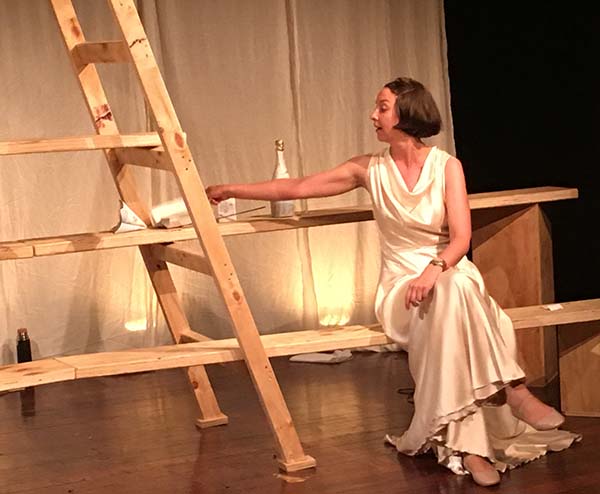
On a very simple set, with a simple, yet ravishingly beautiful costume, Alex Ellis gives us an utterly engaging, thought-provoking performance as Miss Jean Batten.
We meet Jean in 1936 as she waits for clear weather to allow her to complete her record-breaking flight from England to New Zealand. She is stuck in the luxury of the Hotel Australia, desperate to carry on her flight, but forced to deal with all of the obstacles thrown in her way. The era is evoked with light yet effective touches, such as the music that plays as the lights come up, and the delightfully cut-glass accent that Jean uses when speaking to her well-wishers and the press.
Alex Ellis is immediately engaging. She involves the audience from the get-go, and invites us to be her sounding board, friend, confidante and admirer, and I must admit, I become an admirer very quickly. She addresses us directly, involving us so easily with a beaming smile, a knowing glance or thoughtful expression. This audience members feels somewhat privileged to hear her thoughts and reminiscences, while also feeling for the difficulties she has encountered.
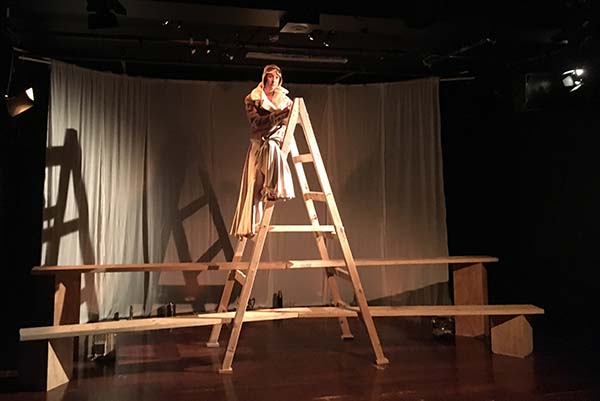
John Parker’s set gives us the barest outline of a bi-plane: a tall stepladder shape with two large beams set horizontally across two of the steps made of bare wood and white fabric, exactly as Batten’s plane was. The suggestion is that this is the place where Jean feels most at home, and most herself.
In Ellis’ assured performance, this set becomes a luxury hotel room, a landing strip, Jean’s cockpit and the scene of a range of memories. She uses the set with a wonderful economy, moving simply from one side to the other or to a different level to move back in time, or begin a new memory. The majority of the props, including flowers, letters, newspapers and even a bottle of champagne, are made from, or covered with, a range of maps, that serves to re-inforce Jean’s need to keep moving forward and keep exploring.
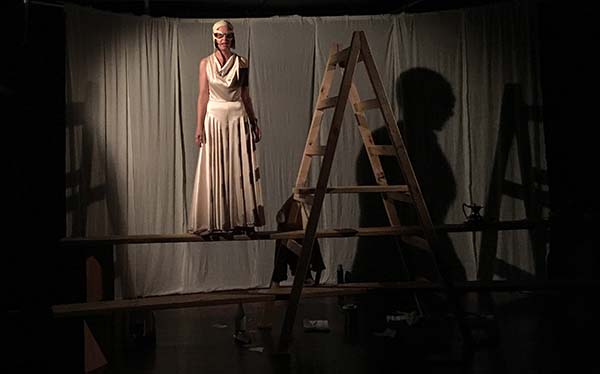
Elizabeth Whiting’s costume design includes the iconic flying jacket and helmet in our first glimpse of Jean, but underneath is a gorgeous one-piece, made of heavy white silk. The full legs of the suit appear to be a long flowing dress, or overalls, depending on the situation and the fabric means that every movement is accompanied by flow and sound and texture that is a nod to the unaccustomed luxury Jean finds herself in on this enforced stopover, as well as a reminder of the practicality of Jean’s flight overalls. Jean tells us that among the many things crammed into her tiny cockpit, she always carries a dress and shoes, as demanded by her mother, and this beautiful costume fulfils that role with aplomb.
As Jean shares her thoughts with us, we become acquainted with the lengths she will go to in order to continue to be an adventurer. Phil Ormsby’s fascinating and stirring play touches on the sentiments of the time: the opinions that cast Jean as wilful and reckless; the casual sexism that refuses to consider the idea of a married woman being an aviatrix; the men who only want Jean to carry out safe adventures that are far from her desire to be a trail-blazer and the sacrifices that had to be made to allow Jean to follow her dreams.
Amanda Rees directs the ever changing scenes with an assured hand that moves us from high adventure to deep emotion with a speed and clarity that allows the story to unfold in an organic and deeply satisfying manner. Supported by Thomas Press’ sound design and Ruby Reihana-Wilson’s lighting design, we are able to experience crash landings, press calls, nightmares and everything in between in an engaging and affecting way.
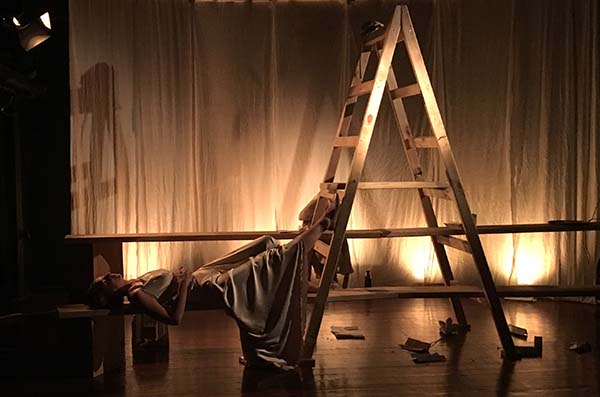
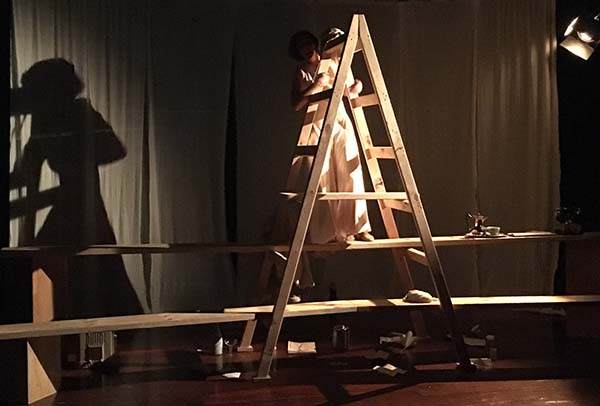
However, the show ultimately belongs to Alex Ellis. Her ‘Miss Batten’, with a specific glance at the audience, has us laughing out loud one moment and gasping with sympathy the next. We empathise with her mistakes with men and feel her emotion as she relives the hardships her mother faced in order to support her. Ellis is able to move between emotions in the twinkling of an eye, giving us a believable and very human heroine.
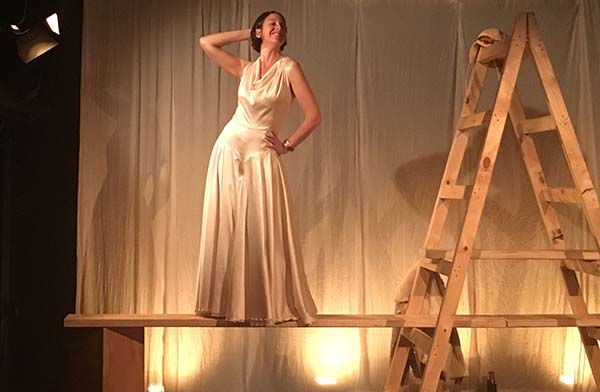
We are able to experience Jean’s triumph as she reaches Auckland, where the comment that she is “a very naughty girl” is accepted by her as praise rather than disparagement. I am happy to also add my praise to this appealing and stimulating show.